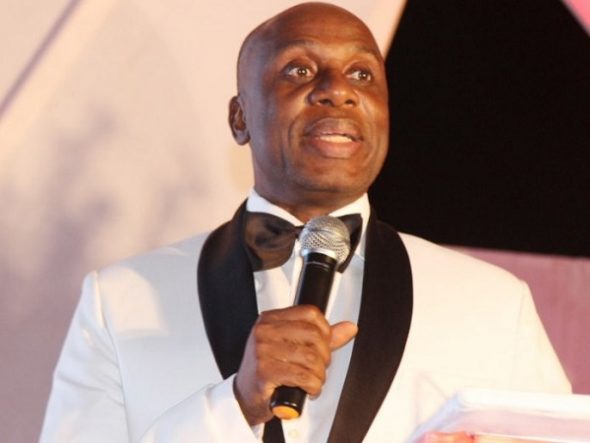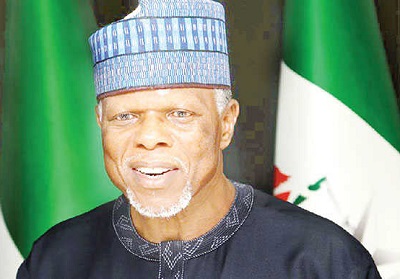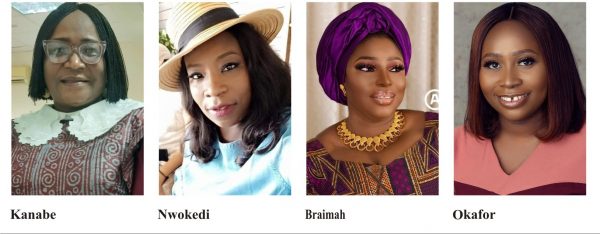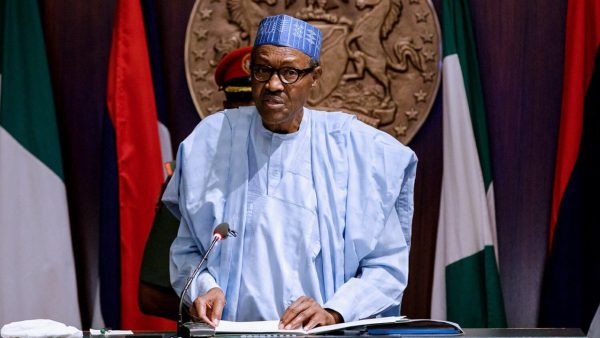Maritime Amazons Explore Avenues To Boost Women Involvement In Maritime
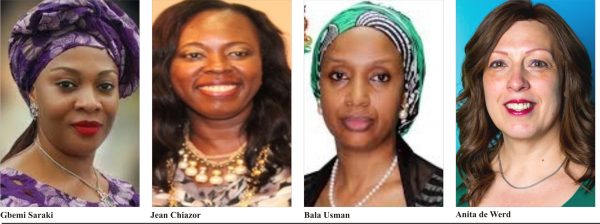
By Kenneth Jukpor
In a bid to create an opportunity to raise awareness on the importance of gender equality and to highlight the important contribution of women all over the world, to the maritime sector, the International Maritime Organization (IMO) set the 2019 World Maritime Day theme on ‘Empowering Women in the Maritime Community’.
The event in Lagos was a memorable one as the women ensured there were colourful moments during the felicitation; however the event re-emphasized the reality which is that women have been marginalized across most parts of the maritime sector.
In a bid to get how much women inclusion would be sufficient in the maritime sector, MMS Plus spoke with the Director, African Region at Maersk Line, Mrs. Anita De Werd who stated that until women attain 50% inclusion across all aspects of maritime, they wouldn’t settle for less.
Anita said, “At Maersk Line, we run the Africa Leadership Development Programme where we have 50% women attending. This programme is to prepare our next leaders in managerial positions in Africa. Currently, 65% of the graduates from these programmes have managerial positions in African countries. You would be amazed at the exemplary performance of women at the this programme”
She stressed that there were several women who hold significant positions at Maersk Line. “Women head Saf-marine in different countries like Nigeria, Kenya, Senegal, among others. Even within our global head offices, we have women who are heading our product departments; a woman heads the operations department. Here in Africa, we have a woman who heads the inland product” she assured.
However, she stressed that as long as women have not 50% represented in all aspects of the maritime sector globally, she would posit that their representation in the sector wasn’t good enough.
“Women still have to do a lot of work. It is important for women to step up and also make known that they want those kinds of ambitions. It is also important for us all to realize that we have unconscious biases and sometimes these unconscious biases can lead us to exclude others. Making unconscious bias conscious, having training and knowing that you have those biases, that will also help bring women to the top” she added.
However, Nigeria’s Minister of State for Transportation, Hon. Gbemisola Saraki stressed that women were not begging, even as she lamented that some Nigerian men wouldn’t give women opportunities when they clearly deserve it on merit.
“The point we are trying to make is that everything should be on merit. We know that not all the men in several positions deserve to be there. The issue is that there are certain people in the society who are disadvantaged. There are prejudices, whether it is religion, tribe or gender. This problem exists and that’s why the International Maritime Organization (IMO) has focused on this” Saraki said.
While she frowned at all forms of gender-based marginalization, she stressed that the issue of women empowerment wasn’t only about appointments or 35% inclusion, but appointments, employment and involvement in maritime businesses.
“If we want women to be inclusive, it has to be inclusive in appointments, employment and business. In maritime, as far as I’m concerned women businesses should be part of those who would do dredging, survey and possibly 5%-10% of all Federal Government contracts via all the agencies. By doing this, we would encourage them. There are many women who are already engineers but can’t breakthrough. Apart from that, we would also motivate young girls to be encouraged that this is something they can do”, she added.
However, the CEO of Ocean Deep Services Limited Mrs. Rollens Macfoy expressed confidence that role of women in the sector would continue to increase with more emphasis on the need to have more women in the industry.
“Prior to today, the representation of women in the maritime sector was less than 5% but after such global conference highlighted by the International Maritime Organized (IMO) has set aside the World Maritime Day theme for the “Empowering Women in the Maritime Community”. With all that has been said at this meeting today, if these things are implemented we are sure to have more women involvement in the industry” Macfoy told MMS Plus at the event.
Macfoy who interfaces regular with seafarers observed that some female seafarers have been discouraged.
“Seeing the woman engineer who has two kids, who went through it and is still there, I think younger seafarers should be encouraged. She said it all. Catch them young as they are just coming out of university or tertiary institutions and they go into all these areas. If they serve for 5 or 10 years before they get married then you are preparing them for managerial positions”
“If somebody serves onboard a vessel for 5 or 10 years, the person is automatically a very good manager. Such woman can occupy a managerial position and ensure that things are happening as they ought to. That person is not someone that you can tell stories. The person already knows because she was there before that time and that’s a very good start. This a very good point that ship owners, Nigerian Maritime Administration and Safety Agency (NIMASA) and all stakeholders should take note of. Take women when they are very young so that they will be useful at a very later age when they start child birth and afterwards” Macfoy explained.
Six women emerged winners in the top 10 NIMASA Essay competition. Subsequently, Hon. Gbemisola Saraki and Macfoy provided free scholarships to the first and second women respectively; showing their willingness to encourage younger women.
In her contributions at the event, the Managing Director of Nigerian Ports Authority (NPA) Ms. Hadiza Bala-Usman admonished all categories of stakeholders in the maritime industry to ensure that they create an enabling environment for women
“I want to implore everyone on the need to make conscious efforts and decisions that would support women in the work environment” she said.
However, she challenged young women to thrive to work twice as hard as men to ensure that they deserve all opportunities that they seek to get.
“Recall that when your parents were paying for school fees there were no discount for the girl child. You have to aspire to be the best. I was always striving to be the best in class. I would beat the boys in school even as a girl. I would also beat the boys when it was time for presentations. So, always thrive to be the best. When there are challenges as a woman, talk about it. I am a promoter of women and I’m sure that most of my colleagues here support women in the maritime industry” Hadiza posited.
Meanwhile the Chairperson, House of Representatives Committee on Maritime Safety, Education and Administration, Hon. Lynda Ikpeazu assured that she would advocate for laws that would lead to improved participation of women in the maritime industry.
The President of African Women in Maritime (WIMAFRICA) Barr. (Mrs.) Jean-Chiazor Anishere pointed out that in several aspects of maritime including seafood harvesting, the numbers and employment conditions of women are usually well behind that of men.
Anishere, who was represented by the former Managing Director of National Inland Waterways Authority (NIWA) Mrs. Chinwe Ezenwa said, “Stereotyping and discrimination against maritime women persist. They affect working conditions, equal access to education and training, as well as career opportunities. Reports from World Information Centre show that women represent only two percent of the world’s 1.2 million seafarers working in the industry”
According to her, some factors responsible for discouraging women from picking a maritime career may include; lack of encouragement by families and the society, absence of relevant educators and organizations to encourage them through trainings, the fear of being bullied and facing sexual harassment even at work by their male counterparts, among others.
“The good news is that the International Maritime Organization (IMO) has been making a concerted effort to help the industry move forward and support women to achieve a representation that is in keeping with twenty-first century expectations”
“As IMO is putting in such great efforts, we should also not relent in making sure that women are given equal rights as men. We need to take it upon ourselves to empower each and every citizen to take care of the oceans and enable all women play transformative and ambitious roles in understanding, exploring, protecting and sustainably managing our oceans” she added.
Although women engage in all aspects of ocean interaction, yet in many parts of the world, women’s contribution, both towards ocean-based livelihoods like fishing and conservation efforts are invisible and gender inequality persists from the marine industry even to the field of ocean science.
It is high time we correct the perception that women are not suitable for working on board ships, due to the nature of seafaring. We should also remove structural barriers and build good networks and above all, support quality education to ensure that no woman or girl is left behind in the maritime sector where women remain significantly under-represented.



